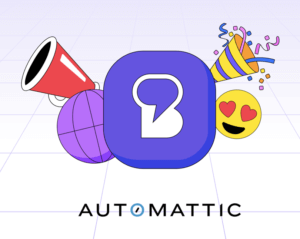 Apple sent threat notifications to iPhone users in 92 countries on Wednesday, warning them that they may have been targeted by mercenary spyware attacks,TechCrunch reported.
Apple sent threat notifications to iPhone users in 92 countries on Wednesday, warning them that they may have been targeted by mercenary spyware attacks,TechCrunch reported.
The company said it sent the alert levels to individuals in 92 nations at 12 p.m. Pacific Time Wednesday. The notification, which TechCrunch has seen, did not disclose the attackers’ identities or the countries where users received notifications.
“Apple detected that you are being targeted by a mercenary spyware attack that is trying to remotely compromise the iPhone associated with your Apple ID – xxx-,” it wrote in the warning to affected customers.
“This attack is likely targeting you specifically because of who you are or what you do. Although it’s never possible to achieve absolute certainty when detecting such attacks, Apple has high confidence in this warning – please take it seriously,” Apple added in the text.
Apple Support posted “About Apple threat notifications and protecting against mercenary spyware” From the post:
Apple threat notifications are designed to inform and assist users who may have been individually targeted by mercenary spyware attacks, likely because of who they are or what they do. Such attacks are vastly more complex than regular cybercriminal activity and consumer malware, as mercenary spyware attackers apply exceptional resources to target a very small number of specific individuals and their devices. Mercenary spyware attacks cost millions of dollars and often have a short shelf life, making them much harder to detect and prevent. The vast majority of users will never be targeted by such attacks.
BleepingComputer reported Apple has been notifying iPhone users in 92 countries about a “mercenary spyware attack” attempting to remotely compromise their device.
In a sample notification the company shared with BleepingComputer, Apple says that it has high confidence in the warning and urgent the recipient to take seriously.
According to BleepingComputer, to protect against such attacks, Apple recommends a set of immediate actions that include enabling lockdown mode on the device, updating the iPhone and any other Apple products to the latest software version, and seeking expert assistance such as that from the Digital Security Helpline – a non-profit that provides technical support at no cost for journalists, activists, and human rights defenders.
When describing mercenary spyware attacks, the notification highlights NSO Group’s Pegasus kit and says that they are exceptionally well-funded, sophisticated, and target a small number of individuals.
Apple also updated its support page on the spyware protection yesterday, replacing the term “state sponsored” with “mercenary spyware,” noting that these attacks are ongoing and global and sometimes involve private companies that develop spying tools for state actors.
In my opinion, Apple did the right thing by reporting about the mercenary spyware that might be targeting someone’s iPhone.

 Billboard
Billboard Messaging today is a mess,
Messaging today is a mess,  Spotify
Spotify  The Liberal government is setting aside $2.4 billion in its upcoming budget to build capacity in artificial intelligence, Prime Minister Justin Trudeau announced Sunday,
The Liberal government is setting aside $2.4 billion in its upcoming budget to build capacity in artificial intelligence, Prime Minister Justin Trudeau announced Sunday,  Hackers are using Facebook advertisements and hijacked pages to promote fake Artificial Intelligence services, such as MidJourney, OpenAI’s SORA and ChatGPT-5, and DALL-E, to infect unsuspecting users with password-stealing malware,
Hackers are using Facebook advertisements and hijacked pages to promote fake Artificial Intelligence services, such as MidJourney, OpenAI’s SORA and ChatGPT-5, and DALL-E, to infect unsuspecting users with password-stealing malware,